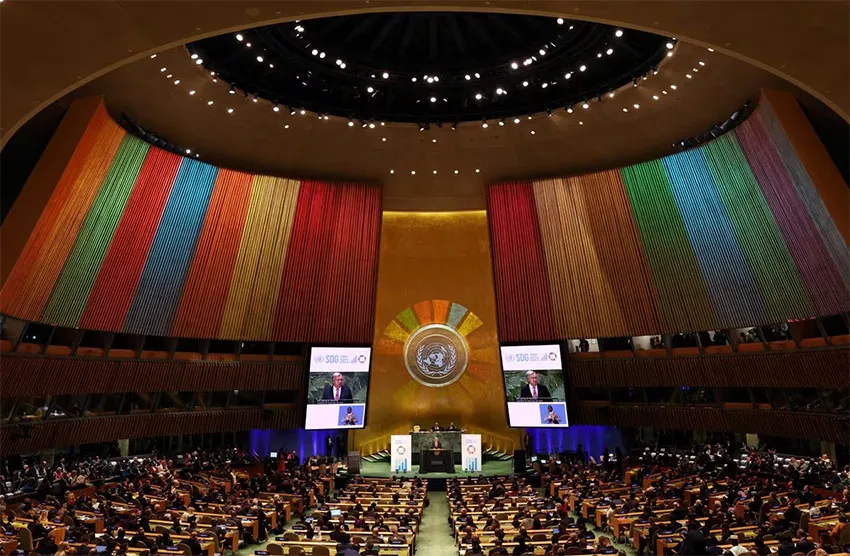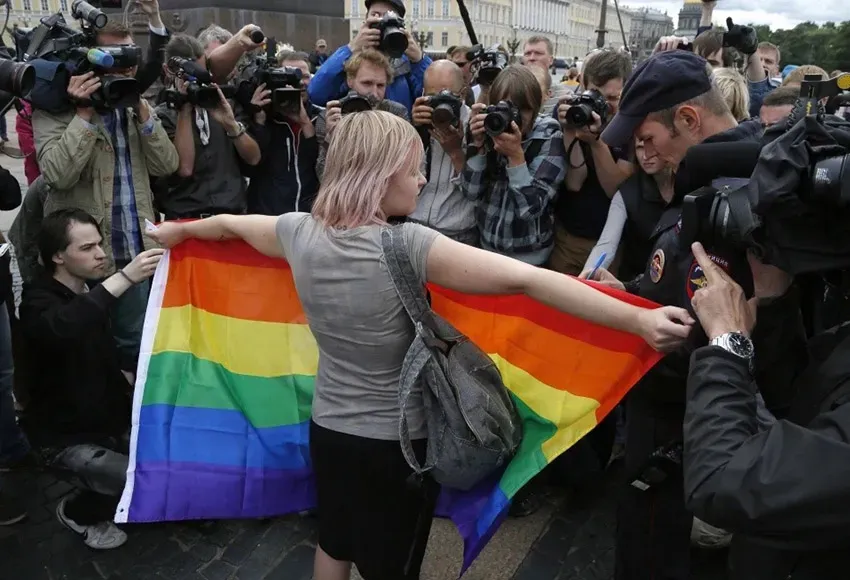Russian top court declares Queer movement "extreme," raids on bars begin
The Russian Supreme Court granted a request from the country's ministry of justice to label the "international LGBT social movement" as "extremist," a move that has led to a violent crackdown on Russia's Gay bars.
The decision was made behind closed doors and took less than four hours for the judges to reach. The court declared that the ruling would go into effect immediately.
Less than 48 hours after the November 30 ruling, Russian security forces raided Gay clubs and bars across Moscow. Police searched a nightclub, a male sauna, and a bar that hosted Queer parties, under the pretext of a drug raid, local media reported.
Eyewitnesses told journalists that clubgoers' documents were checked and photographed by the security services. They also said that managers had been able to warn patrons before police arrived.
In a statement to the Associated Press before the ruling, Max Olenichev, a human rights lawyer who works with the Russian Queer community, said, "In practice, it could happen that the Russian authorities, with this court ruling in hand, will enforce [the ruling] against LGBTQ+ initiatives that work in Russia, considering them a part of this civic movement."
The court's ruling follows a long line of anti-Queer measures taken by the Russian government as led by Vladimir Putin, who has publicly described the West and an alleged global Queer movement as existential threats to Russian cultural values and traditions.
"The authorities' move apparently serves a dual purpose," said Tanya Lokshina, associate Europe and Central Asia director at Human Rights Watch, in a statement. "It is meant to increase the scapegoating of LGBT people to appeal to the Kremlin's conservative supporters before the March 2024 presidential vote and to paralyze the work of rights groups countering discrimination and supporting LGBT people."
Before the ruling, out municipal deputy and opposition party member Sergei Troshin Sergeyev predicted that a decision in favor of Putin's government would be the death knell of the Queer support network, denying people much-needed medical and mental health services.
"This will all be so underground that, unfortunately, I'm sure there are many people who won't be able to get help," Sergeyev told Reuters at the time. "They will either [die by suicide] or simply be in some terrible state – their life will be shortened, and their health will deteriorate, they will drink and smoke more, and so on, somehow trying to escape from this reality."

UN warns that anti-Queer laws impede progress against HIV/AIDS
Anti-Queer laws stop people from accessing lifesaving health services and seriously impede progress on eliminating HIV, a senior UN official has said.
Sixty-seven countries have laws that criminalize Gay sex, and nearly half are in Africa, the continent most affected by HIV. In those countries, prevalence rates are about five times higher among Gay men than in countries where same-sex relations are not criminalized, according to figures from UNAids.
More recent anti-Queer laws have gone into effect this year in Uganda and Ethiopia, with similar legislation pending in Ghana.
"When LGBTQ+ people and other marginalized communities are stigmatized and criminalized, their access to lifesaving health services is obstructed, and the HIV response is undermined," said Winnie Byanyima, the executive director of UNAids.
Lois Chingandu, the director of external relations at the charity Frontline AIDS, said, "It is important that countries do more when it comes to investing in HIV prevention methods, but also show stronger leadership in countering anti-rights narratives within their countries." Well-funded and highly organized movements are promoting anti-gender and anti-Queer views, she added.
Ahead of World AIDS Day on December 1, the UN said a life is lost to the disease every minute. Last year, 1.3 million people were infected with HIV. About 9.2 million people living with the condition did not have access to treatment. Gay men, Transgender people, sex workers, and people who inject drugs are among the groups most affected.
Last year, five countries – Botswana, Eswatini, Rwanda, Tanzania, and Zimbabwe – achieved global 2025 targets of ensuring that 95% of the people living with HIV know their status, 95% are on antiretroviral treatment, and 95% on treatment are virally suppressed.


